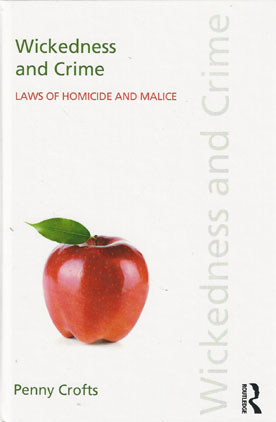
Malice of Law examines how criminal legal doctrine and jurisprudence organises and expresses ideas about wickedness through the prism of malice.
Whilst many legal theorists accept that the criminal legal system is a system of blaming, they do not consider that blaming involves censure or reproof for fault, wrong, badness or wickedness. Historically, the link between criminal law and morality was explicit, and expressed through evaluative terms in offence formulae such as malice and mens rea. Now, however, there is a tendency to think of crime in neutral procedural terms and to avoid reference to its normative elements.
Through an analysis, which is both historical and contemporary, Penny Crofts reverses this modern tendency by addressing how the legal system communicates what it means to be at fault - to be bad, or to be wicked. Despite claims to the contrary, criminal law communicates and sanctions particular models of wickedness.
Arguing that the current dominant idea of wickedness communicated in criminal law lacks nuance and fails to explain much of what the legal system does, Malice of Law examines its implications in terms of the legal subject, social responsibility and the jurisdiction of the legal system.